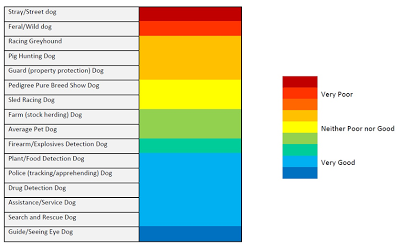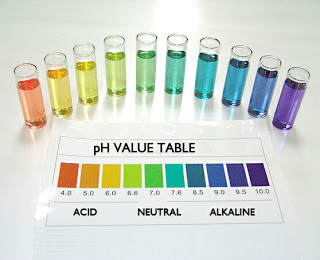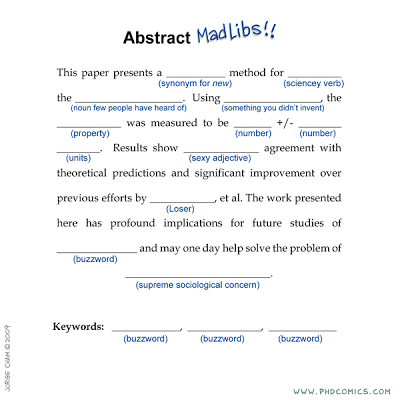Dogs
Hey Julie,
All those conferences sound completely AMAZING! I love that both dog urine and poo are totally appropriate topics for us to discuss in our conversations. All the other scientists are so jealous right now!
I hope you've been well since getting home again. We've just been through the longest heatwave ever recorded in Melbourne over the past fortnight (9 days over 30oC / 90oF in a row) and today it's finally cooled off, hooray! I haven't posted you the TimTams I promised you on Twitter yet, for fear they'd melt before leaving Australia!

This is based on data I gathered in an online survey that was conducted as part of my PhD. I asked participants to rate the welfare of different dog types on a scale of 1-5 from very poor to very good. Consequently, this image is a representation of the perception of welfare of different types of dogs rather than an indication of actual welfare. But perceptions are important!
Proceedings from the day, including my full paper, should be available early next week on the RSPCA Australia website.
I'll make sure to put a note up on Facebook when it does.
My presentation covered:
- the increasing expectation from the general public for transparency and best practice from industries using animals in work and sport;
- how we have traditionally measured animal welfare in science;
- I used working dogs as an example to talk through the life cycle stages (breeding/sourcing; raising/training; housing/healthcare and retirement/endpoints), exploring what we have learned through our recent research projects in regards to welfare, current practices and where there is room for improvement.
- I also spoke briefly about research currently under way that is using cognitive bias (often referred to as testing to see if animals are optimistic/pesimistic) as an indicator of canine emotions.

I had the chance to catch up with Sam Gosling (University of Texas at Austin) yesterday after hearing him present at the University of Melbourne. He gave a fantastic overview of the research his team have done looking at what our 'stuff' (from bedrooms, to office spaces to facebook profiles and websites) says about our personality. Fascinating!
After his presentation, fellow Anthrozoology Research Group member, Tammie and I chatted with him further about his group's work into non-human (specifically DOG) personality as well, which was great. One of his PhD students just had a meta-analysis of personality consistency in dogs published through PLoS-ONE (hurrah for open access).
Further reading:
Fratkin J., Sinn D., Patall E. & Gosling S. (2013). Personality Consistency in Dogs: A Meta-Analysis., PloS One, 8 (1) DOI: 10.1371/journal.pone.0054907
Gosling S.D., Augustine A.A., Vazire S., Holtzman N. & Gaddis S. (2011). Manifestations of Personality in Online Social Networks: Self-Reported Facebook-Related Behaviors and Observable Profile Information, Cyberpsychology, Behavior, and Social Networking, 14 (9) 483-488. DOI: 10.1089/cyber.2010.0087
Seligman M.E.P., Ernst R.M., Gillham J., Reivich K. & Linkins M. (2009). Positive education: positive psychology and classroom interventions, Oxford Review of Education, 35 (3) 293-311. DOI: 10.1080/03054980902934563
- 2014: A Great Year For Canine Science
Hi Julie, Hope your festive season was fun and full of laughter. Happy new year to you! I've decided that 2014 is THE year for canine science! It's been a fairly long time since we compared notes on what we're doing at...
- Throw Another Dog In The (data) Pool
Hello Julie, My, oh my! What an exciting time it was last week, witnessing Dog Spies' migration to the Scientific American Blog Network. Such a great day for dogs, for science and for YOU! Yah! for this recognition of your fabulous...
- Scientific American Gets A Dog
Paper and pen VS THE COMPUTERHi Mia, So I’m going to postpone the conversation I alluded to on Facebook. I wanted to ask you whether you opt for pen and paper when you're writing out blogs and work, or if you’re a computer gal, typing directly...
- Rspca Australia Scientific Seminar 2013: Recap
Hi Julie, what a week! Thanks for all that great information about The Sounds of Dogs, that was so interesting. I definitely recognise differences in the way my dogs bark. They have very different vocalisations for "strange person at the door",...
- When Coping Is Not Enough
Hi Julie, Snapshot from Project: Play with your Dog's 'Wall of Contributors'I’m so pleased to hear that Project: Play with Your Dog is going well. I’ve enjoyed watching the wall of contributors grow and it’s awesome that The Bark...
Dogs
The heat(map) is on... The colours of canine welfare.
Hey Julie,
All those conferences sound completely AMAZING! I love that both dog urine and poo are totally appropriate topics for us to discuss in our conversations. All the other scientists are so jealous right now!
I hope you've been well since getting home again. We've just been through the longest heatwave ever recorded in Melbourne over the past fortnight (9 days over 30oC / 90oF in a row) and today it's finally cooled off, hooray! I haven't posted you the TimTams I promised you on Twitter yet, for fear they'd melt before leaving Australia!

Speaking of heat, I made a heat map of canine welfare for one of my presentation slides at the recent RSPCA Australia Scientific Seminar. It was very colourful and looked like this (click to embiggen):
 |
| Cobb's colourful heat map, depicting perceived welfare levels of different dog types. |
Proceedings from the day, including my full paper, should be available early next week on the RSPCA Australia website.
I'll make sure to put a note up on Facebook when it does.
 |
| We wish we had a quick and easy indicator of animal welfare, but we don't! |
- the increasing expectation from the general public for transparency and best practice from industries using animals in work and sport;
- how we have traditionally measured animal welfare in science;
- I used working dogs as an example to talk through the life cycle stages (breeding/sourcing; raising/training; housing/healthcare and retirement/endpoints), exploring what we have learned through our recent research projects in regards to welfare, current practices and where there is room for improvement.
- I also spoke briefly about research currently under way that is using cognitive bias (often referred to as testing to see if animals are optimistic/pesimistic) as an indicator of canine emotions.
 |
| Yep, I actually used this image in my presentation (source) |
- I related the changing dynamic within animal welfare science from researching welfare outcomes (how do we understand and limit the bad stuff) toward studying affective states (how can we understand and promote the good stuff) to similar trends in other fields of research such as human positive psychology and education.

So now I'm home again and focussing my attention on writing up the results of the data analyses (from that online survey) into a paper. I want to submit the paper for publication in a peer-reviewed academic journal. As you know, this can be a lengthy process.
I first have to draft the paper to a standard that I am happy with; then forward it to my PhD supervisors who may (probably will!) suggest changes and redraft. I then need to decide which journal to submit it to, and format the paper accordingly. There are lots of factors involved in selecting which journal to submit to, including impact factors.Then I will contact the journal and submit it for peer-review.
 |
| While scientific papers DO follow a formula (Abstract / Intro / Methods / Results / Discussion / Conclusion), they are not THIS formulaic! (source) |
After that, the paper will be reviewed, probably by two other scientists working in the same field, who act as peer-reviewers and provide feedback to the journal's editorial team about the suitability of my paper for publication in that journal. They may give me comments suggesting minor or major changes to the paper, or even say they don't think it belongs in that journal.
All up, it can easily take over a year from writing a paper to getting it published, sometimes closer to two years! Right now, I'm just focussing on step one -- get a draft completed!
| Sam Gosling and I, obviously caught unaware, deep in thought. |
After his presentation, fellow Anthrozoology Research Group member, Tammie and I chatted with him further about his group's work into non-human (specifically DOG) personality as well, which was great. One of his PhD students just had a meta-analysis of personality consistency in dogs published through PLoS-ONE (hurrah for open access).
I look forward to talking some more about meta-analysis with you soon. It's a very exciting way of exploring existing data!
How's everything going with you? Any hot tips for getting my paper drafted for publication?
Mia
Further reading:
Fratkin J., Sinn D., Patall E. & Gosling S. (2013). Personality Consistency in Dogs: A Meta-Analysis., PloS One, 8 (1) DOI: 10.1371/journal.pone.0054907
Gosling S.D., Augustine A.A., Vazire S., Holtzman N. & Gaddis S. (2011). Manifestations of Personality in Online Social Networks: Self-Reported Facebook-Related Behaviors and Observable Profile Information, Cyberpsychology, Behavior, and Social Networking, 14 (9) 483-488. DOI: 10.1089/cyber.2010.0087
Seligman M.E.P., Ernst R.M., Gillham J., Reivich K. & Linkins M. (2009). Positive education: positive psychology and classroom interventions, Oxford Review of Education, 35 (3) 293-311. DOI: 10.1080/03054980902934563
- 2014: A Great Year For Canine Science
Hi Julie, Hope your festive season was fun and full of laughter. Happy new year to you! I've decided that 2014 is THE year for canine science! It's been a fairly long time since we compared notes on what we're doing at...
- Throw Another Dog In The (data) Pool
Hello Julie, My, oh my! What an exciting time it was last week, witnessing Dog Spies' migration to the Scientific American Blog Network. Such a great day for dogs, for science and for YOU! Yah! for this recognition of your fabulous...
- Scientific American Gets A Dog
Paper and pen VS THE COMPUTERHi Mia, So I’m going to postpone the conversation I alluded to on Facebook. I wanted to ask you whether you opt for pen and paper when you're writing out blogs and work, or if you’re a computer gal, typing directly...
- Rspca Australia Scientific Seminar 2013: Recap
Hi Julie, what a week! Thanks for all that great information about The Sounds of Dogs, that was so interesting. I definitely recognise differences in the way my dogs bark. They have very different vocalisations for "strange person at the door",...
- When Coping Is Not Enough
Hi Julie, Snapshot from Project: Play with your Dog's 'Wall of Contributors'I’m so pleased to hear that Project: Play with Your Dog is going well. I’ve enjoyed watching the wall of contributors grow and it’s awesome that The Bark...
